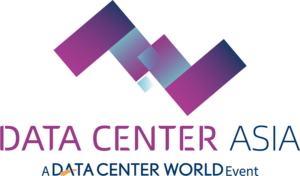In today’s digital landscape, data security is paramount for organizations operating within the Asia Pacific data center market. With increasing cyber threats and stringent regulatory requirements, conducting regular data security audits is essential for enhancing data center protection.
Data Center Asia 2025 offers a unique opportunity to explore cutting-edge solutions and connect with industry leaders shaping the future of data center operations—join us to stay ahead and shape the future of data center operations!

Understanding the Importance of Data Security Audits
A data security audit involves a comprehensive evaluation of an organization’s data security measures. This process helps identify vulnerabilities and assess the effectiveness of existing security protocols. For data center operators and owners, regular audits are crucial in ensuring compliance with industry standards and regulations, as well as safeguarding sensitive information from potential breaches.
In the Asia Pacific data center market, where data privacy laws are becoming increasingly stringent, a thorough audit can provide peace of mind and help organizations mitigate risks. By understanding the current security landscape, companies can prioritize their resources effectively and implement necessary improvements.
Steps to Conduct an Effective Data Security Audit
Assess Current Security Policies: Begin by reviewing existing data security policies and procedures. Ensure they align with industry best practices and regulatory requirements. This step is crucial for identifying any gaps that may exist.
Inventory Data Assets: Create a comprehensive inventory of all data assets, including databases, servers, and applications. Understanding where sensitive data resides is key to evaluating its protection.
Evaluate Security Controls: Analyze the effectiveness of current security controls, such as firewalls, encryption, and access management systems. This evaluation should include testing these controls to ensure they function as intended.
Conduct Penetration Testing: Engage in penetration testing to simulate cyber attacks and assess the resilience of your data security solution. This proactive approach can uncover vulnerabilities that may not be evident through standard audits.
Establish a Remediation Plan: After identifying weaknesses, develop a remediation plan that outlines specific actions needed to enhance data protection. Prioritize these actions based on potential risk and impact.
Conclusion
In conclusion, conducting regular data security audits is essential for organizations in the Asia Pacific data center market looking to enhance their data protection strategies. By following a structured approach to audits, companies can identify vulnerabilities and implement effective data security solutions.
As we approach DCA 2025, we encourage industry professionals to attend Data Center Asia to explore the latest advancements in data security and network with leading experts in the field. This exhibition will provide valuable insights and resources that can help strengthen your organization’s data security posture in an increasingly complex environment.



